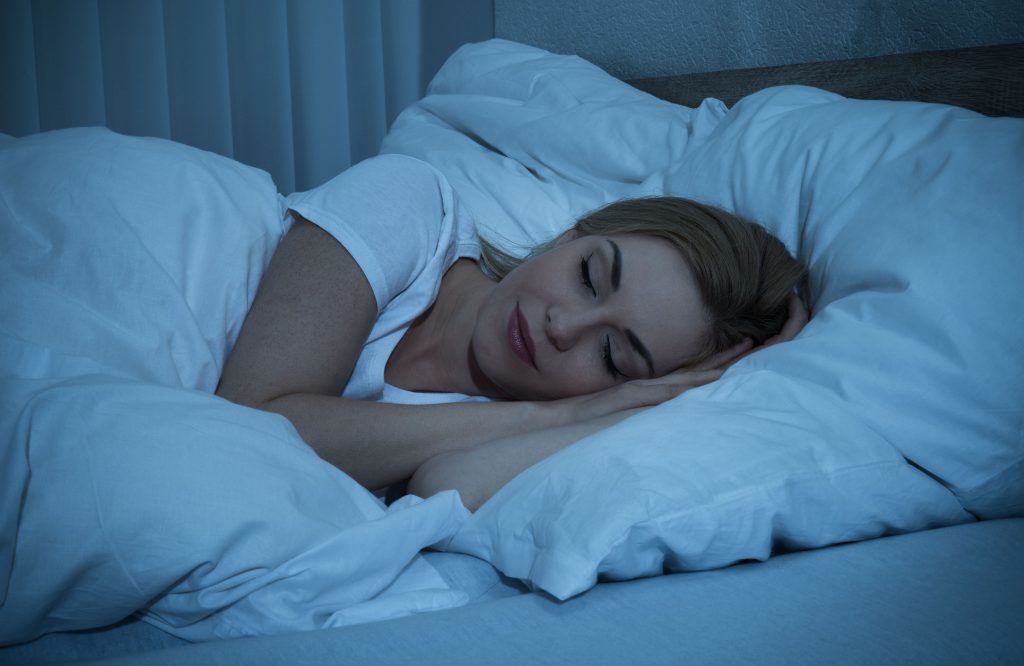
When you sleep better, life is easier. Too many people make the mistake of sacrificing sleep. It’s no wonder they feel tired all day and like they’re walking around with their head in a cloud. Unfortunately, bad habits become part of our routines and ingrained in what we do, and we don’t even notice them. We forget what it feels like to be fully rested and full of energy.
When you sleep better, your whole life is different. You are less likely to overeat, will respond better to stress, and experience higher cognitive performance. To put it plainly, your body will have more resources to call upon when you need to perform or make decisions.
Getting better sleep takes practice. Thankfully, this is something that you can control. If you’re someone who doesn’t get enough sleep or is always having difficulty falling asleep, there is hope. There are simple but effective strategies that will help you fall asleep faster and get the restorative sleep that you need to feel refreshed and ready for whatever comes.
Building a Night Routine
Our bodies learn to read signals. When you take the time to create an environment conducive to sleep, your body will respond in kind. It’s no wonder so many people have trouble sleeping when they’re on their phones right up until their heads hit the pillow. Answering work emails, scrolling social media, or texting with friends strains your eyes and increases electrical activity in the brain.
Your mind needs to wind down before it gets to sleep. To help get there faster, you need to make it easy. Avoid using your phone before bed. Turn down the lights, listen to some relaxing music, or take a shower before bed to relax your muscles. Find a routine that works for you where your body knows what it should do well in advance.
Do a Sleep Study
Did you know that you can do a sleep study where doctors and other medical professionals analyze what’s happening to your body when you sleep? You used to have to go into the hospital or a clinic and sleep in a strange bed. It was a challenge because, a lot of the time, you had to do the study in the middle of the day. Now, however, doctors can send you home with sensors that track your sleep when you’re at home. They then read through the results and make findings based on the data.
You may be suffering from something like sleep apnea that is standing in your way of getting better sleep at night. Book an appointment for a sleep study to figure out if you need any medical intervention.
How Peptides Facilitate Sleep
According to research, there is good evidence to suggest that Sermorelin, a popular peptide, helps regulate orexin in the brain. Orexin is a powerful neurochemical that helps regulate sleep cycles and move the brain through stages of sleep, including REM sleep. Research in fish shows that Sermorelin boosts orexin secretion by stimulating growth hormone-releasing hormones, or GHRH. There is ongoing research into Sermorelin and its impact on sleep quality.
Try Exercising Before Bed
Exercising right before you want to go to sleep is probably not a great idea. You’ll be full of adrenaline and in an activated state that makes it harder to wind down. However, your body should be tired before it goes to bed, and exercising is a great way to burn some energy and get you ready for sleep. When you go to bed full of energy, you’re more likely to be thinking about what happened that day, which bills need to be paid, and everything else on your plate. When you’re tired, though, you go right to bed because your brain needs rest.
Give exercising before your bedtime routine a try. You can go for a long walk or a light jog to burn off any excess energy left over from the day. It doesn’t have to be intense exercise, but obviously, the harder you go, the more tired you’ll be.
Getting better sleep is key to feeling better during the day and performing at a higher level. What’s more, there is a lot of data pointing to the fact that better sleep does wonders for anti-aging. The better sleep you get throughout life, the better you’ll fee











